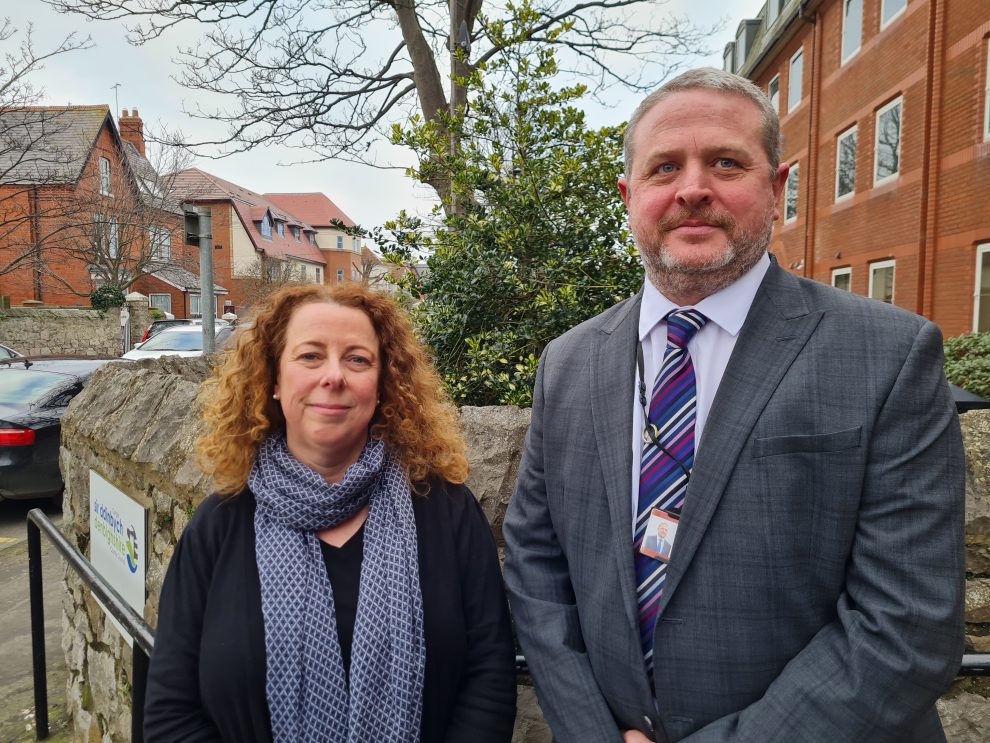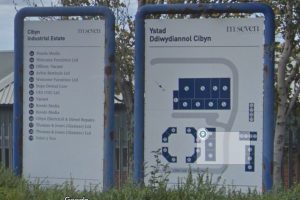DENBIGHSHIRE schools will be unable to adequately support children’s mental health and well-being in a post-COVID world due to council cutbacks, says the headteacher of the county’s largest school.
A letter went out to parents last month signed by the majority of headteachers, pleading with parents to write to their MP and MS over ‘extreme’ cuts.
Cash-strapped Denbighshire agreed this year to cut school budgets across the board by 3% whilst raising council tax by 9.34%.
Mr Neil Foley is the headteacher at Prestatyn High School, the largest school in Denbighshire with 1,550 pupils.
The school has an annual budget of £8.1m, but the 3% cut equates to around £250,000 a year.
This shortfall, though, becomes £500,000 once inflation, pay rises, teacher pension demands, and various charges are factored in.
Consequently, Prestatyn High will cut six teachers on fixed-term contracts, increasing class sizes, whilst the school will also be forced to reduce non-statutory well-being provisions and pastoral care put in place after COVID as well as student options. The school will also lose a librarian.
In an interview with the local democracy reporting service, Mr Foley said the letter to parents wasn’t political, in terms of backing Denbighshire’s Labour-led council, but said cuts would affect children’s mental health.
Mr Foley explained many headteachers were on the brink of resigning over fears they would have to cut more non-statutory provisions and jobs.
“The cuts are significantly impacting our mainstream education. The current situation is that we have a certain amount of staffing and we provide a really good service,” said Mr Foley.
“But inevitably, because of these funding cuts, we are going to have to lose a lot of the additional provisions that we put in place after the pandemic to support our pupils getting back to school.
“Losing teachers will also inevitably lead to larger class sizes, so we are having to look at what we can offer in options for both GCSEs and A-levels to try and make some savings.”
Mr Foley explained that many children are suffering mental health issues in the wake of COVID leading to lower attendances and that many children were struggling to attend school.
Consequently, Prestatyn High has provisions to encourage children back into the classroom with extra staff and well-being rooms for children facing difficulties, but these will now be reduced.
“We’ve also introduced some well-being support and pastoral support to additionally help some of our pupils get back to learning in the classroom,” he said.
“Post pandemic, a minority of students don’t want to go to school. It is either a mental health issue or they just can’t reintegrate back into full-time education. So they may attend one day and then they panic after a few hours the next or walk out of a lesson.
“We have a process and a team to deal with those pupils to get them into school and gradually get them back, but we are scaling that back because we can’t afford the cost. We also have an attendance team who go out knocking on doors, but lack of funding will reduce what I can offer for our students.
“It will most definitely impact the mental health of some of our pupils who are struggling, and often they become vulnerable because they are not attending school. Originally, they are not vulnerable students, but if they’re not in school, any child can become vulnerable.”
He added: “So we are reducing the machinery, the actual processes we have put in place that I built up since the pandemic, which were working exceptionally effectively, and now I’m having to scale some of that back because it is not statutory.”
Although Denbighshire made 3% cuts this year and 1% cuts last year, other authorities such as neighbouring Conwy cut 5.5% this year and 5% last year from its education budget.
Mr Foley admitted many of his colleagues were leaving the profession because of the extra pressures and believes more teachers in Denbighshire could quit due to the current financial pressure.
“Some headteachers in Wales have decided this will be their last year because of the level of challenge,” he said.
“I’m not thinking that, but the level of challenge is at the highest level. It keeps me awake at night. I think these teachers have been lucky enough to work in Denbighshire, and this is the first year where they are thinking. ‘can I make more people redundant?’”
He added: “At the moment there is no impact because we are currently at the current staffing level, but in the new (school) year, come September, students who are getting additional support won’t get as much, and there is going to be more students in the class, so the teachers will have an increased workload.”
Cllr Gill German is the deputy leader of the council and the lead member for education and said the funding was not enough and predicted the situation getting worse.
“We are looking at similar challenges next year,” she said.
“Without a crystal ball, it will be impossible to see what we are looking at. But we will be pulling out all the stops to make anything we ask of our schools (future cuts) as little as we can, even if it means scaling back some other services. Our number-one priority in Denbighshire is to protect our young people, and that will continue.”
As a Labour councillor, Cllr German blames the funding shortfall on the UK’s Conservative Government, who in turn fund the Labour-led Welsh Government, who then allocate the annual local government settlement to councils.
Despite the claims of a funding shortfall, Denbighshire this year received the highest local government settlement in North Wales with a 3.7% increase in funds, this comparing to neighbouring Conwy’s 2% rise.
Cllr German said the extra amount only reflects the county’s level of deprivation.
“The funding is awarded based on the demographics of the area,” she said.
“We receive the extra amount because of children who receive free school meals from disadvantaged families, so that reflects the provision that we meet.
“Things are as difficult in Denbighshire as other local councils across the UK. We know we’ve had a couple of councils go bankrupt, so we know this is a UK-wide issue.
“Our schools have put together an excellent package in a post-COVID period where we’ve had problems with children returning to school. We still haven’t got attendance up to where we want it to be. There are well-being issues and mental health problems with young people, and we’ve seen a really excellent response from our schools to that.
“My fear is our schools can’t be that front line as well as they have been, and if you have a class full of children and they’re mentally truanting (because of mental health issues), they may as well not be there. We would be foolish to think we will come out of that and any time soon.”
A Welsh Government spokeswoman said: “The UK Government austerity agenda means there are significant pressures on all budgets.
The Welsh Government budget for 2024-25 is now worth £1.2bn less in real terms than when it was set in 2021.
“Despite this, we have prioritised protecting core frontline public services, including schools, through protecting the indicative rise for the local government settlement.
“The 2024-25 final settlement will provide an additional 3.3% to local authorities, this is on top of the consolidated increase of 7.9% for the current year. We will continue to work with partners across the sector to ensure the best possible outcomes for our learners.”
The UK Government was contacted for a comment.



















